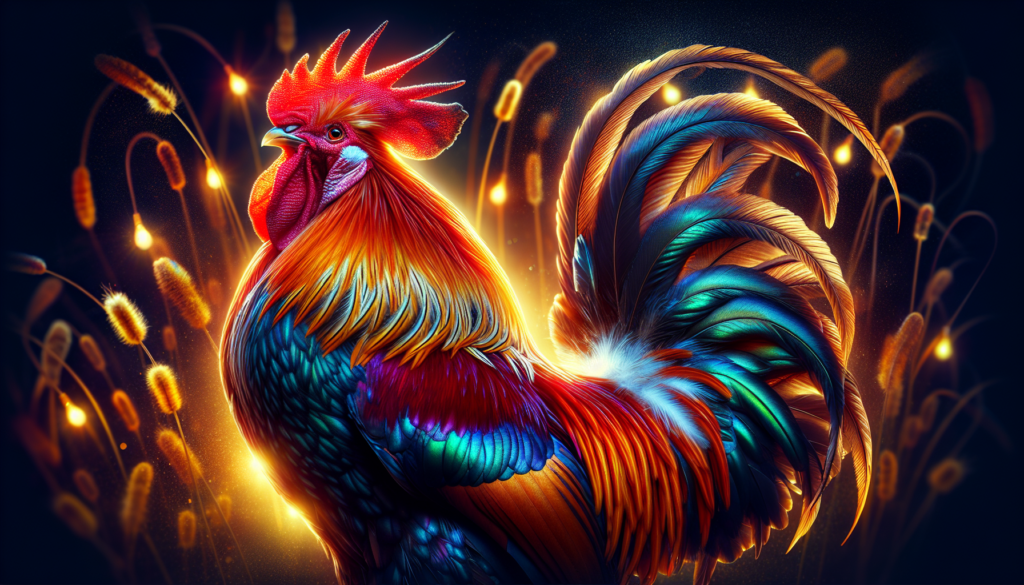Have you ever wondered if certain dog breeds are more challenging or easier to breed? If so, you’re not alone. Many dog enthusiasts and breeders alike are curious to know if certain breeds present unique challenges or if some are more straightforward to breed. Understanding the intricacies of breeding different breeds can help guide breeders in their decision-making process and ensure the health and well-being of their animals. In this article, we will explore whether specific dog breeds pose more challenges or are easier to breed, shedding light on the fascinating world of dog breeding.
Factors Influencing the Difficulty of Breeding
Breeding dogs is a complex and intricate task that requires the utmost care and attention. There are several factors that can influence the difficulty of breeding, making it essential for breeders to consider these factors before embarking on a breeding journey.
Genetic Complexity
One of the primary factors that can influence the difficulty of breeding is the genetic complexity of the breed. Some breeds have more genetic diversity and variants than others, which can make it challenging to find suitable breeding pairs that will produce healthy and well-balanced offspring. Breeding dogs with complex genetic backgrounds requires extensive knowledge and expertise to ensure the health and longevity of the breed.
Health Complications
Health complications can greatly impact the breeding process, making it more difficult for certain breeds. Some breeds are prone to various health issues such as hip dysplasia, heart problems, or respiratory conditions. Breeders need to be diligent in choosing healthy individuals for breeding to minimize the risk of passing on these health complications to the next generation. Regular health screenings and genetic testing play a crucial role in identifying potential health issues and making informed breeding decisions.
Behavioral Traits
Behavioral traits also play a significant role in the difficulty of breeding. Some breeds have strong and stubborn personalities, making it challenging to manage their behavior during mating and throughout the breeding process. Aggression, anxiety, or fearfulness can add another layer of complexity to breeding, requiring careful handling and supervision. Breeders must consider the temperament and behavioral traits of their dogs to ensure the breeding process goes smoothly and the resulting puppies have desirable behavioral traits.
Breeds That Are More Challenging to Breed
While any breed can present its own unique challenges during the breeding process, there are certain breeds that are known to be more challenging. These breeds require extra attention, expertise, and care to successfully produce healthy litters.
Brachycephalic Breeds
Brachycephalic breeds, such as Bulldogs, Pugs, and Boxers, are notorious for their flattened faces and unique respiratory anatomy. These breeds often face difficulties in natural mating due to their physical limitations, and many require artificial insemination to ensure successful breeding. Moreover, the health complications associated with their distinctive anatomy, such as breathing difficulties and heat intolerance, add complexity to breeding these breeds.
Giant Breeds
Giant breeds, including Great Danes, Saint Bernards, and Newfoundlands, present their own set of challenges in the breeding process. They are generally larger and heavier, requiring extra care and supervision during mating to prevent injuries or accidents. Additionally, the gestation period of giant breeds tends to be longer, and the size of their litters can vary, making the breeding process more unpredictable.
Rare Breeds
Breeding rare breeds poses unique challenges due to their limited gene pool and restricted availability of suitable breeding partners. With fewer individuals to choose from, breeders face increased difficulty in maintaining genetic diversity and avoiding inbreeding. The scarcity of these breeds can also make it challenging to find potential buyers or homes for the puppies, potentially affecting the financial viability of breeding endeavors.
Breeds That Are Easier to Breed
While breeding any dog requires responsible practices and thorough preparation, there are certain breeds that tend to be easier to breed due to various factors.
Popular Breeds
Popular breeds, such as Labrador Retrievers, Golden Retrievers, and German Shepherds, often have a larger population and gene pool to choose from. This abundance of breeding options makes it relatively easier to find suitable mates that meet desired breeding standards. Moreover, the demand for puppies of popular breeds is usually high, increasing the likelihood of finding suitable buyers.
Moderately-Sized Breeds
Moderately-sized breeds, including Beagles, Corgis, and Border Collies, can often be easier to breed due to their manageable size and fewer physical complications. Mating is generally less challenging compared to larger breeds, and the risks associated with birthing and caring for litters are generally reduced. The moderate size of these breeds also makes them more suitable for a wider range of living situations, attracting more potential buyers.
Mixed Breeds
Breeding mixed breeds, commonly known as designer dogs or hybrids, can be relatively easier due to their hybrid vigor. The genetic diversity resulting from the crossing of two different purebred dogs often leads to healthier and more resilient offspring. Additionally, the popularity of mixed breeds as family pets has increased in recent years, providing breeders with a larger potential market for their puppies.
The Role of Responsible Breeding
No matter the breed, responsible breeding practices are essential to maintain the overall health and well-being of dogs and to preserve breed standards. It is crucial for breeders to acknowledge and understand the importance of responsible breeding practices to avoid potential negative consequences and ethical dilemmas.
Consequences of Inadequate Breeding Practices
Inadequate breeding practices can have severe consequences for both the individual dogs and the breed as a whole. Breeding without proper health screenings and genetic testing can perpetuate and exacerbate genetic disorders, leading to a higher prevalence of health issues within the breed. This not only affects the puppies produced but also contributes to the burden of healthcare costs for owners and potential suffering for affected dogs.
Importance of Screening and Health Testing
Screening and health testing for hereditary conditions are crucial steps in responsible breeding. Regular health checks, genetic tests, and evaluations for breed-specific health concerns help identify potential issues in breeding dogs before mating occurs. By selecting breeding pairs that are genetically healthy and free from inheritable diseases, responsible breeders reduce the likelihood of passing on such problems to the offspring and contribute to the long-term health of the breed.
Ethical Considerations
Responsible breeding also includes ethical considerations. Breeders should prioritize the welfare of their dogs, ensuring they receive appropriate healthcare, nutrition, and socialization. The practice of breeding should not prioritize profit over the well-being of the dogs involved. Responsible breeders also consider the impact of producing more puppies on an already overpopulated dog population, encouraging responsible dog ownership and promoting adoption as an alternative to buying from breeders.
In conclusion, breeding dogs can be both challenging and rewarding. Understanding the factors that influence the difficulty of breeding, such as genetic complexity, health complications, and behavioral traits, can help breeders make informed decisions to ensure the well-being of their dogs and the success of their breeding programs. By recognizing the challenges specific breeds may present and implementing responsible breeding practices, breeders can contribute to the overall health and preservation of their chosen breed while also promoting responsible dog ownership.




